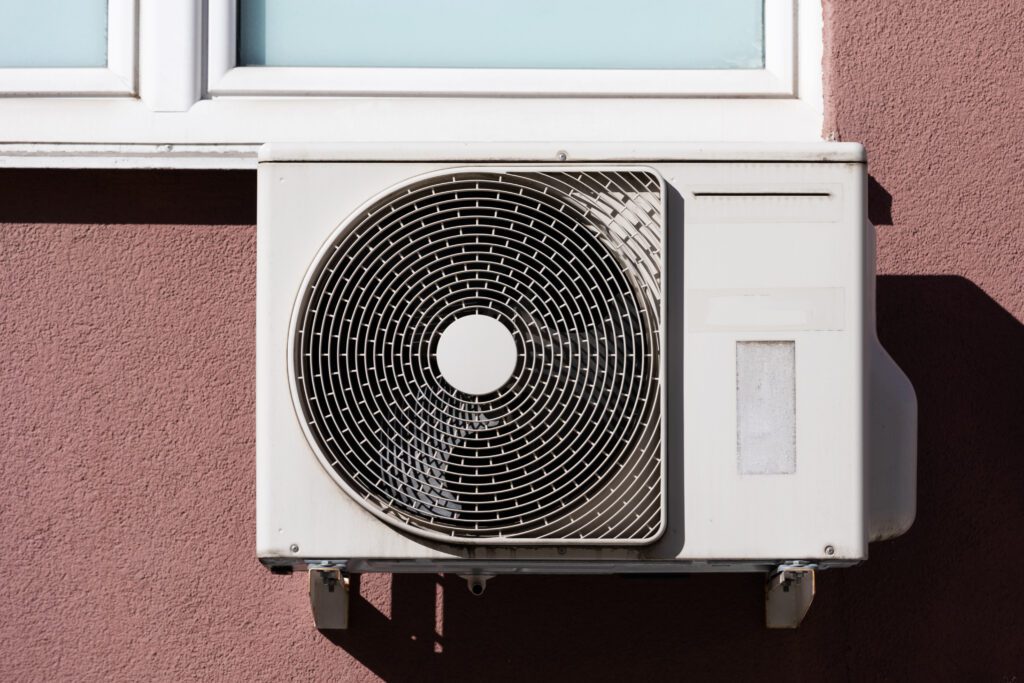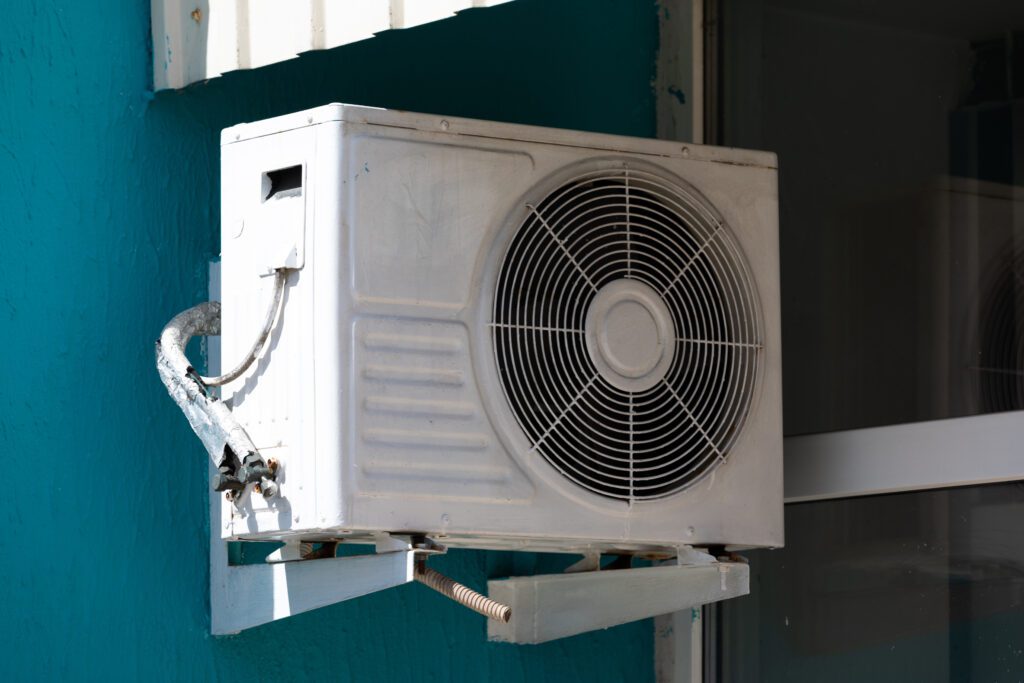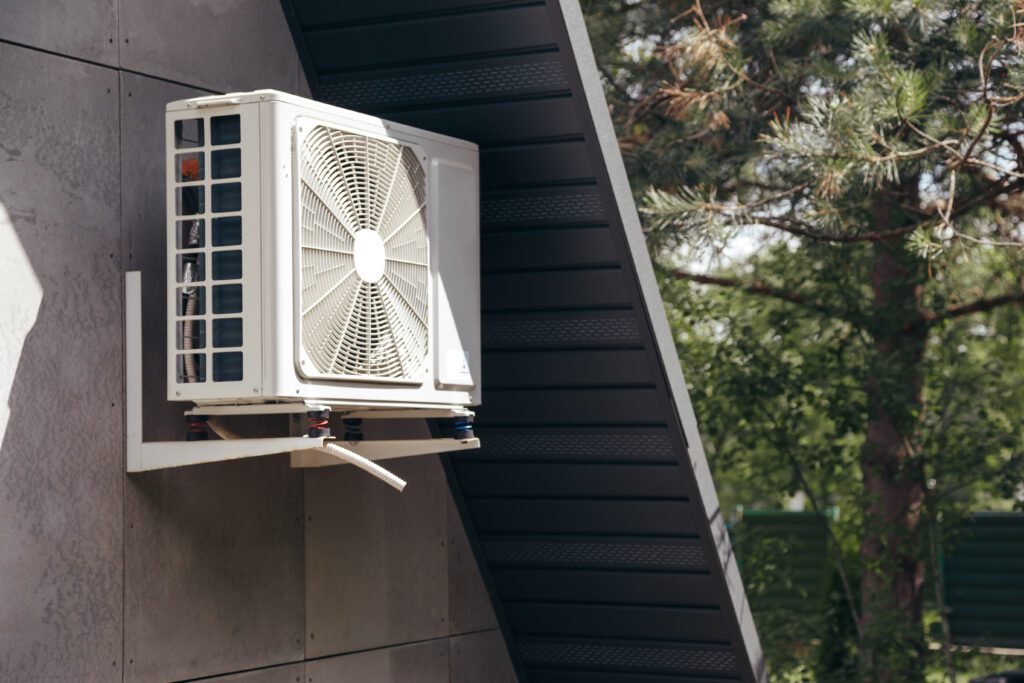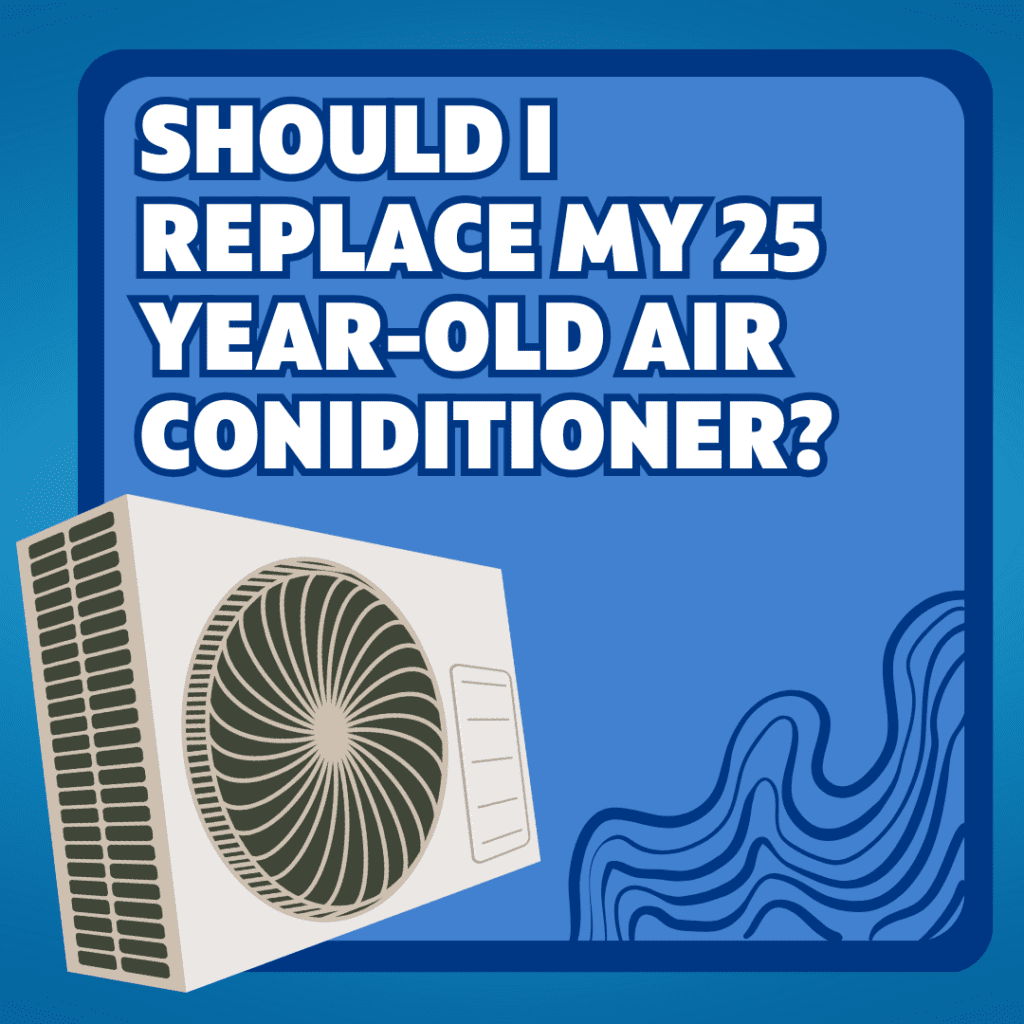“Should I replace my 25-year-old AC unit?” is a question no doubt many people think to themselves every day. If you own an aging air conditioning (AC) unit that has faithfully served you for the past 25 years, you might be wondering whether it’s time to consider a replacement. In this article, we will explore the factors to consider when deciding whether to replace your old AC unit. Understanding the lifespan of an AC unit, evaluating its performance, assessing the cost implications, considering the environmental impact, and choosing the right replacement will be the crucial aspects that we will explore.
Understanding the Lifespan of an AC Unit
An AC unit’s lifespan can vary depending on several factors. Factors like the brand, quality, usage, maintenance, and even the climate in which it operates can affect how long an AC unit will function optimally.
Let’s explore some of the factors that play a role in determining the lifespan of an AC unit.
Factors that Affect an AC Unit’s Lifespan
First and foremost, the quality of the AC unit itself is a significant factor. High-quality units generally have a longer lifespan compared to lower-quality options. Investing in a reputable brand known for its durability and reliability can save you money in the long run.
Regular maintenance and servicing also contribute to prolonging an AC unit’s life. Just like any other mechanical system, an AC unit requires regular care to ensure it operates at its best. This includes cleaning or replacing filters, checking refrigerant levels, and inspecting electrical connections. By scheduling routine maintenance with a professional technician, you can catch any potential issues early on and prevent them from escalating into major problems.
Additionally, the frequency of usage and the climate in which the AC unit operates are important considerations. Units that are used more frequently or in harsh environmental conditions may have a shorter lifespan. For example, if you live in an area with high humidity or extreme temperatures, your AC unit may have to work harder to cool your space, putting more strain on its components.
Signs of an Aging AC Unit
Recognizing the signs of an aging AC unit is crucial in determining whether it’s time for a replacement. While regular maintenance can help extend its lifespan, there will come a point when repairs are no longer cost-effective, and a new unit becomes a more practical option.
Watch out for indicators such as inconsistent cooling, where certain areas of your space feel warmer or colder than others. This could be a sign that your AC unit is struggling to distribute cool air evenly. Frequent breakdowns are also a red flag, as they indicate that your unit is no longer reliable and may require constant repairs.
Increased noise from your AC unit can be another sign of aging. While some noise is normal, excessive or unusual sounds like grinding, squealing, or banging could indicate a problem with the internal components. Lastly, a decreased ability to effectively remove humidity from the air can be a sign that your AC unit is no longer functioning at its best.
If you notice any of these signs, it might be worth considering a replacement to avoid prolonged discomfort and potentially higher repair costs. Remember, a well-maintained and properly functioning AC unit not only keeps you cool but also contributes to a healthier indoor environment.
Evaluating the Performance of Your Old AC Unit

Assessing the performance of your old AC unit involves considering factors such as energy efficiency concerns, frequent repairs or maintenance issues, and the impact on your overall comfort.
Energy Efficiency Concerns
Old AC units tend to be less energy-efficient than newer models. Advancements in technology have led to the development of more energy-efficient units which can result in significant cost savings on your utility bills. Not only will upgrading to a newer model help you reduce your environmental impact, but it will also save you money in the long run.
If your AC unit is consuming excessive energy, it might be worth replacing it with a more efficient model. Newer units often come with features like programmable thermostats and energy-saving modes, allowing you to have better control over your cooling needs and further optimize energy usage.
Frequent Repairs and Maintenance Issues
If you find yourself calling for repairs or scheduling frequent maintenance visits for your old AC unit, it may be a sign that it’s time for a replacement. Frequent breakdowns and increasing maintenance costs can be an indication that your AC unit’s performance is declining.
Investing in a new unit might initially seem costly, but it can save you money and hassle in the long term by reducing the need for constant repairs and maintenance. Newer AC units often come with warranties that cover parts and labor, providing you with peace of mind and protection against unexpected expenses.
Impact on Overall Comfort
Aside from energy efficiency and maintenance concerns, it’s important to consider the impact your old AC unit has on your overall comfort. As AC units age, they may struggle to cool your home evenly or maintain a consistent temperature throughout. This can lead to hot spots, cold spots, or general discomfort.
By upgrading to a newer AC unit, you can enjoy improved comfort and better airflow distribution. Modern units are designed to provide more precise temperature control, ensuring that every corner of your home remains cool and comfortable, even during the hottest summer days.
Additionally, newer AC units often come with advanced features such as variable-speed compressors and multi-stage cooling, allowing for more precise and efficient cooling performance. These features not only enhance your comfort but also contribute to quieter operation, reducing noise pollution in your home.
The Cost Implications of Replacing an Old AC Unit

Replacing an old AC unit comes with cost implications that should be carefully evaluated. Consider both the upfront costs and the long-term savings that a new unit can provide. In addition, explore potential rebates and incentives that may be available for upgrading to a more energy-efficient model.
Upfront Costs vs Long-term Savings
While the upfront cost of a new AC unit can be significant, it’s essential to weigh it against the potential long-term savings. Newer units are designed to be more energy-efficient, which can result in lower utility bills over time.
It’s worth consulting with an HVAC professional to understand the potential savings and payback period associated with investing in a new AC unit.
Potential Rebates and Incentives for New AC Units
Many government bodies, utility companies, and manufacturers offer rebates and incentives for upgrading to energy-efficient AC units. Research and explore these programs to take advantage of any financial assistance that may be available.
These incentives can significantly reduce the overall cost of upgrading and provide an added financial benefit in the long run.
Environmental Impact of Keeping an Old AC Unit
Consider the environmental impact of keeping an old AC unit. Assess factors such as energy consumption and carbon footprint, as well as the proper disposal of the unit when it reaches the end of its life.
Energy Consumption and Carbon Footprint
Older AC units tend to consume more energy, leading to a higher carbon footprint. By upgrading to a new, energy-efficient unit, you can reduce your environmental impact and contribute to a greener future.
Disposal of Old AC Units and Environmental Considerations
Proper disposal of old AC units is essential to minimize pollution and environmental harm. Check with local waste management facilities to ensure you follow proper disposal procedures and consider partnering with organizations that specialize in recycling or responsibly disposing of old AC units.
Choosing the Right Replacement for Your Old AC Unit

When it comes to choosing a replacement for your old AC unit, it’s crucial to consider factors such as understanding different types of AC units, sizing, and installation considerations.
Understanding Different Types of AC Units
There are various types of AC units available, including central AC systems, ductless mini-split systems, and window units. Each type has its advantages and considerations, so familiarize yourself with the options to determine the best fit for your specific needs.
Sizing and Installation Considerations for New AC Units
Proper sizing and installation are key to ensuring optimal performance and energy efficiency of your new AC unit. Consult with a certified HVAC professional who can assess your home’s cooling needs and guide you in selecting the right size and carrying out a proper installation.In conclusion, evaluating whether to replace your 25-year-old AC unit involves considering the lifespan, performance, cost implications, environmental impact, and choosing the right replacement. Understanding these factors and consulting with HVAC professionals can help you make an informed decision that aligns with your comfort, financial, and environmental goals. Don’t hesitate to reach out for expert advice and explore the options available to maximize the benefits of a new, energy-efficient AC unit.



